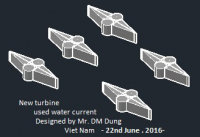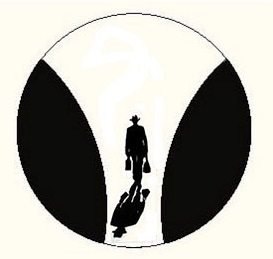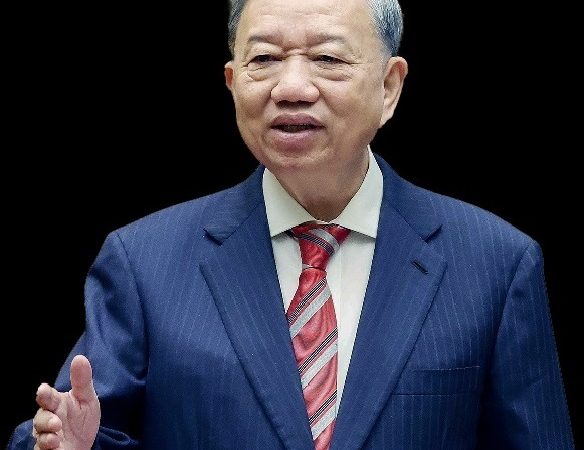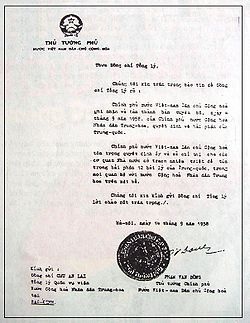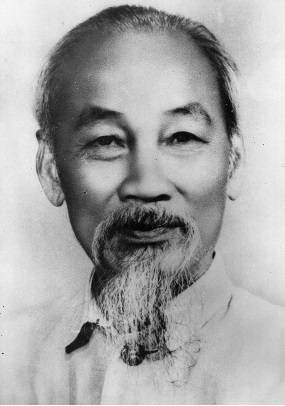TUYÊN NGÔN QUỐC TẾ NHÂN QUYỀN (1948)
Xét rằng việc coi thường và khinh miệt nhân quyền đã đưa tới những hành động dã man làm phẫn nộ lương tâm nhân loại, và việc đạt tới một thế giới trong đó mọi người được tự do ngôn luận và tự do tín ngưỡng, đượïc giải thoát khỏi sự sợ hãi và khốn cùng, được tuyên xưng là nguyện vọng cao cả nhất của con người,
Xét rằng điều cốt yếu là nhân quyền phải được một chế độ pháp trị bảo vệ để con người khỏi bị dồn vào thế cùng, phải nổi dậy chống áp bức và bạo quyền,
Xét rằng điều cốt yếu là phải phát triển những tương quan hữu nghị giữa các quốc gia,
Xét rằng, trong Hiến Chương Liên Hiệp Quốc, các dân tộc đã tái xác nhận niềm tin vào những nhân quyền căn bản, vào phẩm cách và giá trị của con người, vào quyền bình đẳng nam nữ, cùng quyết tâm thúc đẩy tiến bộ xã hội và nâng cao mức sống trong một môi trường tự do hơn,
Xét rằng các quốc gia hội viên đã cam kết hợp tác với Liên Hiệp Quốc để phát huy sự tôn trọng và thực thi trên toàn cầu những nhân quyền và những quyền tự do căn bản,
Xét rằng một quan niệm chung về tự do và nhân quyền là điều tối quan trọng để thực hiện trọn vẹn cam kết ấy.
Vì vậy,
ĐẠI HỘI ĐỒNG LIÊN HIỆP QUỐC
Công bố bản Tuyên Ngôn Quốc Tế Nhân Quyền này như một tiêu chuẩn thực hiện chung cho tất cả các dân tộc và quốc gia, sao cho mỗi cá nhân và đoàn thể xã hội luôn nhớ tới bản tuyên ngôn này, nỗ lực phát huy sự tôn trọng các quyền tự do này bằng học vấn và giáo dục, và bằng những biện pháp lũy tiến trên bình diện quốc gia và quốc tế, bảo đảm sự thừa nhận và thực thi trên toàn cầu các quyền tự do này cho các dân tộc thuộc các quốc gia hội viên hay thuộc các lãnh thỗ bị giám hộ.
Điều 1: Mọi người sinh ra tự do và bình đẳng về phẩm cách và quyền lợi, có lý trí và lương tri, và phải đối xử với nhau trong tình bác ái.
Điều 2: Ai cũng được hưởng những quyền tự do ghi trong bản Tuyên Ngôn này không phân biệt đối xử vì bất cứ lý do nào, như chủng tộc, màu da, nam nữ, ngôn ngữ, tôn giáo, chính kiến hay quan niệm, nguồn gốc dân tộc hay xã hội, tài sản, dòng dõi hay bất cứ thân trạng nào khác.
Ngoài ra không được phân biệt về quy chế chính trị, pháp lý hay quốc tế của quốc gia hay lãnh thổ mà người đó trực thuộc, dù là nước độc lập, bị giám hộ, mất chủ quyền hay bị hạn chế chủ quyền.
Điều 3: Ai cũng có quyền được sống, tự do, và an toàn thân thể.
Điều 4: Không ai có thể bị bắt làm nô lệ hay nô dịch; chế độ nô lệ và sự mua bán nô lệ dưới mọi hình thức đều bị cấm chỉ
Điều 5: Không ai có thể bị tra tấn hay bị những hình phạt hoặc những đối xử tàn ác, vô nhân đạo, làm hạ thấp nhân phẩm.
Điều 6: Ai cũng có quyền được công nhận là con người trước pháp luật bất cứ tại đâu.
Điều 7: Mọi người đều bình đẳng trước pháp luật và được pháp luật bảo vệ bình đẳng không kỳ thị. Mọi người đều được bảo vệ chống lại mọi kỳ thị hay xúi giục kỳ thị trái với Tuyên Ngôn này.
Điều 8: Ai cũng có quyền yêu cầu tòa án quốc gia có thẩm quyền can thiệp chống lại những hành động vi phạm những quyền căn bản được hiến pháp và luật pháp thừa nhận.
Điều 9: Không ai có thể bị bắt giữ, giam cầm hay lưu đầy một cách độc đoán.
Điều 10: Ai cũng có quyền, trên căn bản hoàn toàn bình đẳng, được một toà án độc lập và vô tư xét xử một cách công khai và công bằng để phán xử về những quyền lợi và nghiã vụ của mình, hay về những tội trạng hình sự mà mình bị cáo buộc.
Điều 11:
1) Bị cáo về một tội hình sự được suy đoán là vô tội cho đến khi có đủ bằng chứng phạm pháp trong một phiên xử công khai với đầy đủ bảo đảm cần thiết cho quyền biện hộ.
2) Không ai có thể bị kết án về một tội hình sự do những điều mình đã làm hay không làm, nếu những điều ấy không cấu thành tội hình sự chiếu theo luật pháp quốc gia hay luật pháp quốc tế hiện hành; mà cũng không bị tuyên phạt một hình phạt nặng hơn hình phạt được áp dụng trong thời gian phạm pháp.
Điều 12: Không ai có thể bị xâm phạm một cách độc đoán vào đời tư, gia đình, nhà ở, thư tín, hay bị xúc phạm đến danh dự hay thanh danh. Ai cũng có quyền được luật pháp bảo vệ chống lại những xâm phạm ấy.
Điều 13:
1) Ai cũng có quyền tự do đi lại và cư trú trong quản hạt quốc gia.
2) Ai cũng có quyền rời khỏi bất cứ quốc gia nào, kể cả quốc gia của mình, và có quyền hồi hương.
Điều 14:
1) Khi bị đàn áp, ai cũng có quyền tìm nơi tị nạn và được hưởng quyền tị nạn tại các quốc gia khác.
2) Quyền này không được viện dẫn trong trường hợp sự truy tố thực sự chỉ căn cứ vào những tội trạng không có tính cách chính trị hay vào những hành động trái với mục đích và tôn chỉ của Liên Hiệp Quốc.
Điều 15:
1) Ai cũng có quyền có quốc tịch.
2) Không ai có thể bị tước quốc tịch hay tước quyền thay đổi quốc tịch một cách độc đoán.
Điều 16:
1) Đến tuổi thành hôn, thanh niên nam nữ có quyền kết hôn và lập gia đình mà không bị ngăn cấm vì lý do chủng tộc, quốc tịch hay tôn giáo. Họ có quyền bình đẳng khi kết hôn, trong thời gian hôn thú cũng như khi ly hôn.
2) Hôn thú chỉ có giá trị nếu có sự thuận tình hoàn toàn tự do của những người kết hôn.
3) Gia đình là đơn vị tự nhiên và căn bản của xã hội, và phải được xã hội và quốc gia bảo vệ.
Điều 17:
1) Ai cũng có quyền sở hữu, hoặc riêng tư hoặc hùn hiệp với người khác.
2) Không ai có thể bị tước đoạt tài sản một cách độc đoán.
Điều 18: Ai cũng có quyền tự do tư tưởng, tự do lương tâm và tự do tôn giáo; quyền này bao gồm cả quyền tự do thay đổi tôn giáo hay tín ngưỡng và quyền tự do biểu thị tôn giáo hay tín ngưỡng qua sự giảng dạy, hành đạo, thờ phụng và nghi lễ, hoặc riêng mình hoặc với người khác, tại nơi công cộng hay tại nhà riêng.
Điều 19: Ai cũng có quyền tự do quan niệm và tự do phát biểu quan điểm; quyền này bao gồm quyền không bị ai can thiệp vì những quan niệm của mình, và quyền tìm kiếm, tiếp nhận cùng phổ biến tin tức và ý kiến bằng mọi phương tiện truyền thông không kể biên giới quốc gia.
Điều 20:
1) Ai cũng có quyền tự do hội họp và lập hội có tính cách hoà bình.
2) Không ai bị bắt buộc phải gia nhập một hội đoàn.
Điều 21:
1) Ai cũng có quyền tham gia chính quyền của quốc gia mình, hoặc trực tiếp hoặc qua các đại biểu do mình tự do lựa chọn.
2) Ai cũng có quyền bình đẳng tham gia công vụ trong nước.
3) Ý nguyện của quốc dân phải được coi là căn bản của mọi quyền lực quốc gia; ý nguyện này phải được biểu lộ qua những cuộc tuyển cử có định kỳ và trung thực, theo phương thức phổ thông đầu phiếu kín, hay theo các thủ tục tuyển cử tự do tương tự.
Điều 22: Với tư cách là một thành viên của xã hội, ai cũng có quyền được hưởng an sinh xã hội, cũng như có quyền đòi được hưởng những quyền kinh tế, xã hội và văn hoá cần thiết cho nhân phẩm và sự tự do phát huy cá tính của mình, nhờ những nỗ lực quốc gia, sự hợp tác quốc tế, và theo cách tổ chức cùng tài nguyên của quốc gia.
Điều 23:
1) Ai cũng có quyền được làm việc, được tự do lựa chọn việc làm, được hưởng những điều kiện làm việc công bằng và thuận lợi và được bảo vệ chống thất nghiệp.
2) Cùng làm việc ngang nhau, mọi người được trả lương ngang nhau, không phân biệt đối xử.
3) Người làm việc được trả lương tương xứng và công bằng, đủ để bảo đảm cho bản thân và gia đình một đời sống xứng đáng với nhân phẩm, và nếu cần, sẽ được bổ sung bằng những biện pháp bảo trợ xã hội khác.
4) Ai cũng có quyền thành lập nghiệp đoàn hay gia nhập nghiệp đoàn để bảo vệ quyền lợi của mình.
Điều 24: Ai cũng có quyền nghỉ ngơi và giải trí, được hưởng sự hạn định hợp lý số giờ làm việc và những ngày nghĩ định kỳ có trả lương.
Điều 25:
1) Ai cũng có quyền được hưởng một mức sống khả quan về phương diện sức khỏe và an lạc cho bản thân và gia đình kể cả thức ăn, quần áo, nhà ở, y tế và những dịch vụ cần thiết; ai cũng có quyền được hưởng an sinh xã hội trong trường hợp thất nghiệp, đau ốm, tật nguyền, góa bụa, già yếu, hay thiếu phương kế sinh nhai do những hoàn cảnh ngoài ý muốn.
2) Sản phụ và trẻ em được đặc biệt săn sóc và giúp đỡ. Tất cả các con, dầu là chính thức hay ngoại hôn, đều được hưởng bảo trợ xã hội như nhau.
Điều 26:
1) Ai cũng có quyền được hưởng giáo dục. Giáo dục phải được miễn phí ít nhất ở cấp sơ đẳng và căn bản. Giáo dục sơ đẳng có tính cách cưỡng bách. Giáo dục kỹ thuật và chuyên nghiệp phải được phổ cập. Giáo dục cao đẳng phải được phổ cập cho mọi sinh viên trên căn bản bình đẳng, lấy thành tích làm tiêu chuẩn.
2) Giáo dục phải nhằm phát huy đầy đủ nhân cách, tăng cường sự tôn trọng nhân quyền và những quyền tự do căn bản; phải đề cao sự thông cảm, bao dung và hữu nghị giữa các quốc gia, các cộng đồng sắc tộc hay tôn giáo, đồng thời yểm trợ những hoạt động của Liên Hiệp Quốc trong việc duy trì hoà bình.
3) Cha mẹ có quyền ưu tiên lựa chọn giáo dục cho các con.
Điều 27:
1) Ai cũng có quyền tự do tham gia vào đời sống văn hoá của cộng đồng, thưởng ngoạn nghệ thuật, được hưởng các tiến bộ khoa học và lợi ích của những tiến bộ ấy.
2) Ai cũng được bảo vệ bởi những quyền lợi tinh thần và vật chất phát sinh từ những sản phẩm khoa học, văn học hay nghệ thuật của mình.
Điều 28: Ai cũng có quyền được hưởng một trật tự xã hội và trật tự quốc tế trong đó những quyền tự do ghi trong bản Tuyên Ngôn này có thể được thực hiện đầy đủ.
Điều 29:
1) Ai cũng có nghiã vụ đối với cộng đồng trong đó nhân cách của mình có thể được phát triển một cách tự do và đầy đủ.
2) Trong khi hành xử những quyền tự do của mình, ai cũng phải chịu những giới hạn do luật pháp đặt ra ngõ hầu những quyền tự do của người khác cũng được thừa nhận và tôn trọng, những đòi hỏi chính đáng về đạo lý, trật tự công cộng và an lạc chung trong một xã hội dân chủ cũng được thỏa mãn.
3) Trong mọi trường hợp, những quyền tự do này không thể hành xử trái với những mục tiêu và tôn chỉ của Liên Hiệp Quốc.
Điều 30: Không một điều khoản nào trong Tuyên Ngôn này có thể giải thích để cho phép một quốc gia, một đoàn thể, hay một cá nhân nào được quyền hoạt động hay làm những hành vi nhằm tiêu hủy những quyền tự do liệt kê trong Tuyên Ngôn này.
Bản tiếng Anh
PREAMBLE
Whereas recognition of the inherent dignity and of the equal and inalienable rights of all members of the human family is the foundation of freedom, justice and peace in the world,
Whereas disregard and contempt for human rights have resulted in barbarous acts which have outraged the conscience of mankind, and the advent of a world in which human beings shall enjoy freedom of speech and belief and freedom from fear and want has been proclaimed as the highest aspiration of the common people,
Whereas it is essential, if man is not to be compelled to have recourse, as a last resort, to rebellion against tyranny and oppression, that human rights should be protected by the rule of law,
Whereas it is essential to promote the development of friendly relations between nations,
Whereas the peoples of the United Nations have in the Charter reaffirmed their faith in fundamental human rights, in the dignity and worth of the human person and in the equal rights of men and women and have determined to promote social progress and better standards of life in larger freedom,
Whereas Member States have pledged themselves to achieve, in co-operation with the United Nations, the promotion of universal respect for and observance of human rights and fundamental freedoms,
Whereas a common understanding of these rights and freedoms is of the greatest importance for the full realization of this pledge,
Now, Therefore THE GENERAL ASSEMBLY proclaims THIS UNIVERSAL DECLARATION OF HUMAN RIGHTS as a common standard of achievement for all peoples and all nations, to the end that every individual and every organ of society, keeping this Declaration constantly in mind, shall strive by teaching and education to promote respect for these rights and freedoms and by progressive measures, national and international, to secure their universal and effective recognition and observance, both among the peoples of Member States themselves and among the peoples of territories under their jurisdiction.
Article 1.
All human beings are born free and equal in dignity and rights.They are endowed with reason and conscience and should act towards one another in a spirit of brotherhood.
Article 2.
Everyone is entitled to all the rights and freedoms set forth in this Declaration, without distinction of any kind, such as race, colour, sex, language, religion, political or other opinion, national or social origin, property, birth or other status. Furthermore, no distinction shall be made on the basis of the political, jurisdictional or international status of the country or territory to which a person belongs, whether it be independent, trust, non-self-governing or under any other limitation of sovereignty.
Article 3.
Everyone has the right to life, liberty and security of person.
Article 4.
No one shall be held in slavery or servitude; slavery and the slave trade shall be prohibited in all their forms.
Article 5.
No one shall be subjected to torture or to cruel, inhuman or degrading treatment or punishment.
Article 6.
Everyone has the right to recognition everywhere as a person before the law.
Article 7.
All are equal before the law and are entitled without any discrimination to equal protection of the law. All are entitled to equal protection against any discrimination in violation of this Declaration and against any incitement to such discrimination.
Article 8.
Everyone has the right to an effective remedy by the competent national tribunals for acts violating the fundamental rights granted him by the constitution or by law.
Article 9.
No one shall be subjected to arbitrary arrest, detention or exile.
Article 10.
Everyone is entitled in full equality to a fair and public hearing by an independent and impartial tribunal, in the determination of his rights and obligations and of any criminal charge against him.
Article 11.
(1) Everyone charged with a penal offence has the right to be presumed innocent until proved guilty according to law in a public trial at which he has had all the guarantees necessary for his defence.
(2) No one shall be held guilty of any penal offence on account of any act or omission which did not constitute a penal offence, under national or international law, at the time when it was committed. Nor shall a heavier penalty be imposed than the one that was applicable at the time the penal offence was committed.
Article 12.
No one shall be subjected to arbitrary interference with his privacy, family, home or correspondence, nor to attacks upon his honour and reputation. Everyone has the right to the protection of the law against such interference or attacks.
Article 13.
(1) Everyone has the right to freedom of movement and residence within the borders of each state.
(2) Everyone has the right to leave any country, including his own, and to return to his country.
Article 14.
(1) Everyone has the right to seek and to enjoy in other countries asylum from persecution.
(2) This right may not be invoked in the case of prosecutions genuinely arising from non-political crimes or from acts contrary to the purposes and principles of the United Nations.
Article 15.
(1) Everyone has the right to a nationality.
(2) No one shall be arbitrarily deprived of his nationality nor denied the right to change his nationality.
Article 16.
(1) Men and women of full age, without any limitation due to race, nationality or religion, have the right to marry and to found a family. They are entitled to equal rights as to marriage, during marriage and at its dissolution.
(2) Marriage shall be entered into only with the free and full consent of the intending spouses.
(3) The family is the natural and fundamental group unit of society and is entitled to protection by society and the State.
Article 17.
(1) Everyone has the right to own property alone as well as in association with others.
(2) No one shall be arbitrarily deprived of his property.
Article 18.
Everyone has the right to freedom of thought, conscience and religion; this right includes freedom to change his religion or belief, and freedom, either alone or in community with others and in public or private, to manifest his religion or belief in teaching, practice, worship and observance.
Article 19.
Everyone has the right to freedom of opinion and expression; this right includes freedom to hold opinions without interference and to seek, receive and impart information and ideas through any media and regardless of frontiers.
Article 20.
(1) Everyone has the right to freedom of peaceful assembly and association.
(2) No one may be compelled to belong to an association.
Article 21.
(1) Everyone has the right to take part in the government of his country, directly or through freely chosen representatives.
(2) Everyone has the right of equal access to public service in his country.
(3) The will of the people shall be the basis of the authority of government; this will shall be expressed in periodic and genuine elections which shall be by universal and equal suffrage and shall be held by secret vote or by equivalent free voting procedures.
Article 22.
Everyone, as a member of society, has the right to social security and is entitled to realization, through national effort and international co-operation and in accordance with the organization and resources of each State, of the economic, social and cultural rights indispensable for his dignity and the free development of his personality.
Article 23.
(1) Everyone has the right to work, to free choice of employment, to just and favourable conditions of work and to protection against unemployment.
(2) Everyone, without any discrimination, has the right to equal pay for equal work.
(3) Everyone who works has the right to just and favourable remuneration ensuring for himself and his family an existence worthy of human dignity, and supplemented, if necessary, by other means of social protection.
(4) Everyone has the right to form and to join trade unions for the protection of his interests.
Article 24.
Everyone has the right to rest and leisure, including reasonable limitation of working hours and periodic holidays with pay.
Article 25.
(1) Everyone has the right to a standard of living adequate for the health and well-being of himself and of his family, including food, clothing, housing and medical care and necessary social services, and the right to security in the event of unemployment, sickness, disability, widowhood, old age or other lack of livelihood in circumstances beyond his control.
(2) Motherhood and childhood are entitled to special care and assistance. All children, whether born in or out of wedlock, shall enjoy the same social protection.
Article 26.
(1) Everyone has the right to education. Education shall be free, at least in the elementary and fundamental stages. Elementary education shall be compulsory. Technical and professional education shall be made generally available and higher education shall be equally accessible to all on the basis of merit.
(2) Education shall be directed to the full development of the human personality and to the strengthening of respect for human rights and fundamental freedoms. It shall promote understanding, tolerance and friendship among all nations, racial or religious groups, and shall further the activities of the United Nations for the maintenance of peace.
(3) Parents have a prior right to choose the kind of education that shall be given to their children.
Article 27.
(1) Everyone has the right freely to participate in the cultural life of the community, to enjoy the arts and to share in scientific advancement and its benefits.
(2) Everyone has the right to the protection of the moral and material interests resulting from any scientific, literary or artistic production of which he is the author.
Article 28.
Everyone is entitled to a social and international order in which the rights and freedoms set forth in this Declaration can be fully realized.
Article 29.
(1) Everyone has duties to the community in which alone the free and full development of his personality is possible.
(2) In the exercise of his rights and freedoms, everyone shall be subject only to such limitations as are determined by law solely for the purpose of securing due recognition and respect for the rights and freedoms of others and of meeting the just requirements of morality, public order and the general welfare in a democratic society.
(3) These rights and freedoms may in no case be exercised contrary to the purposes and principles of the United Nations.
Article 30.
Nothing in this Declaration may be interpreted as implying for any State, group or person any right to engage in any activity or to perform any act aimed at the destruction of any of the rights and freedoms set forth herein.
